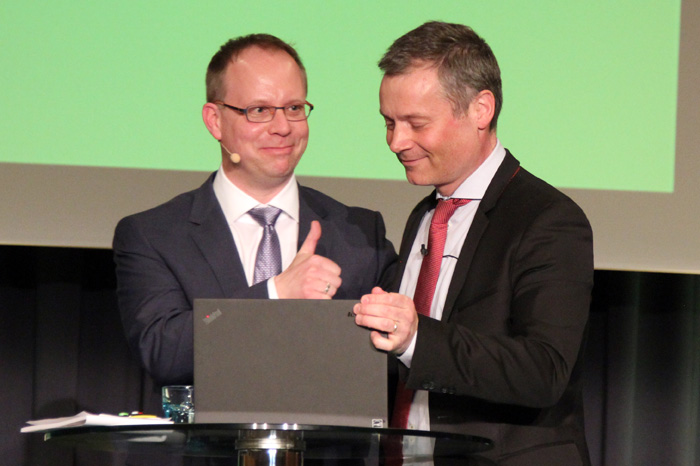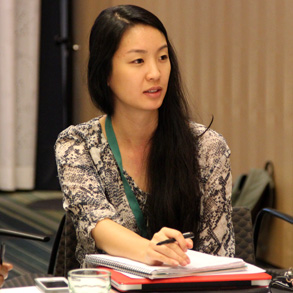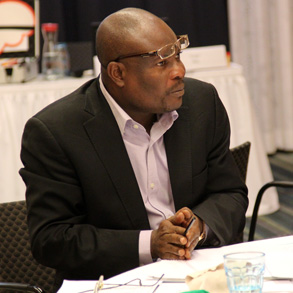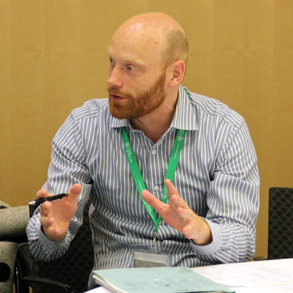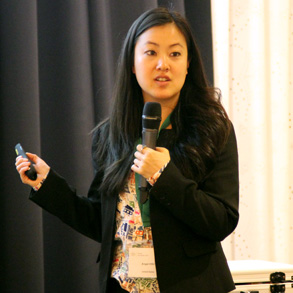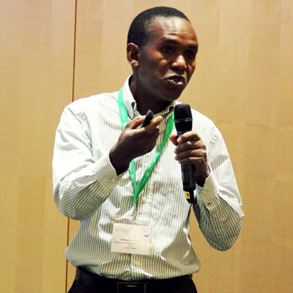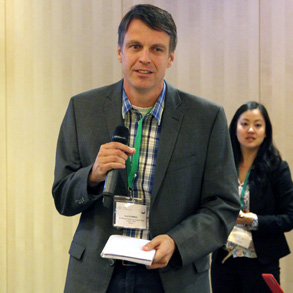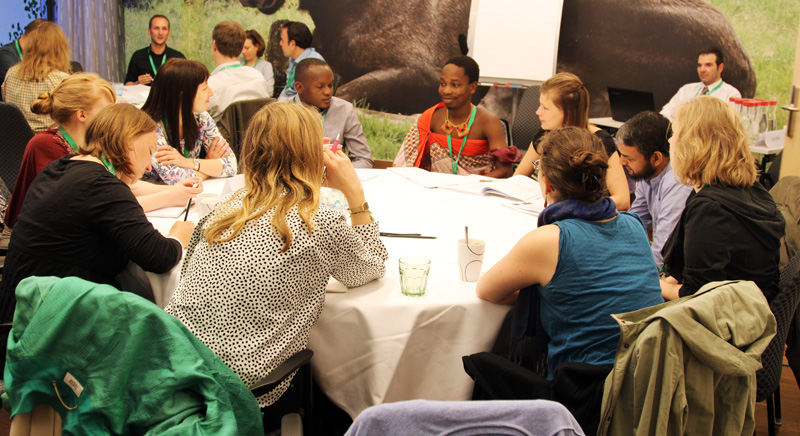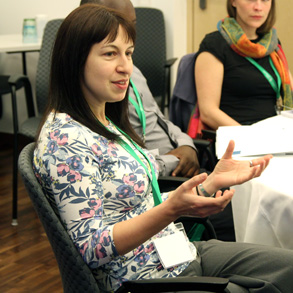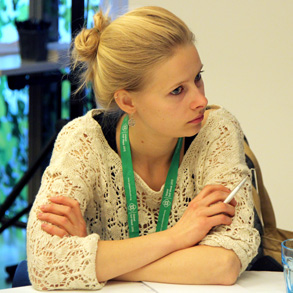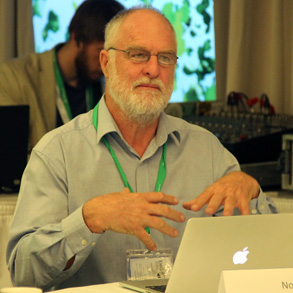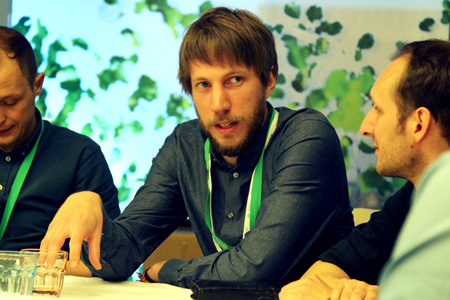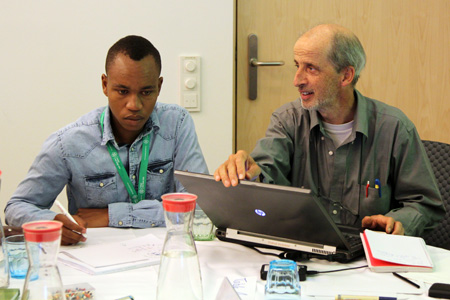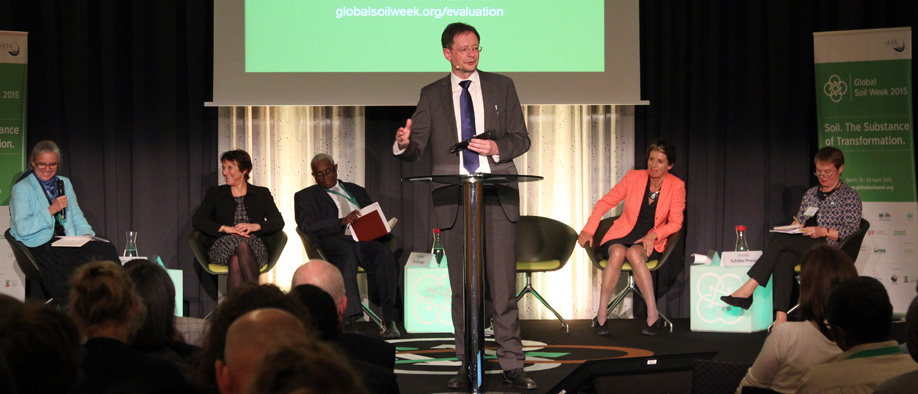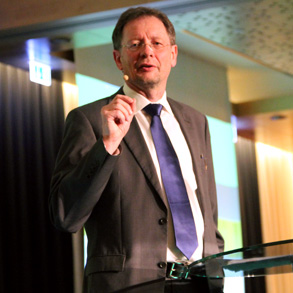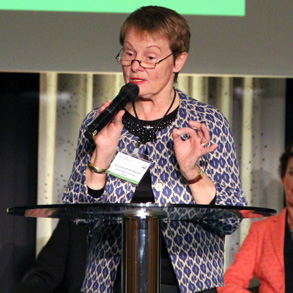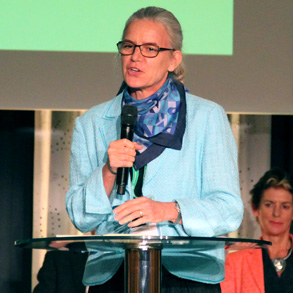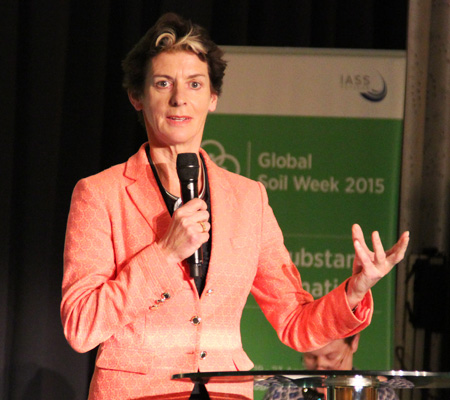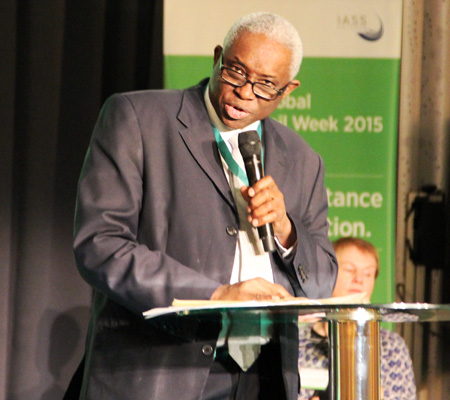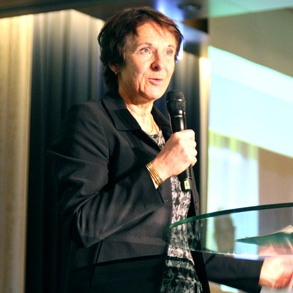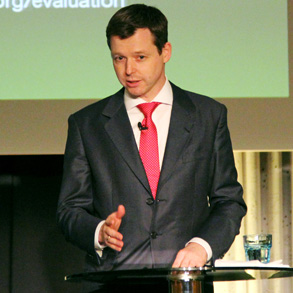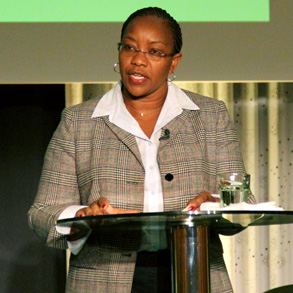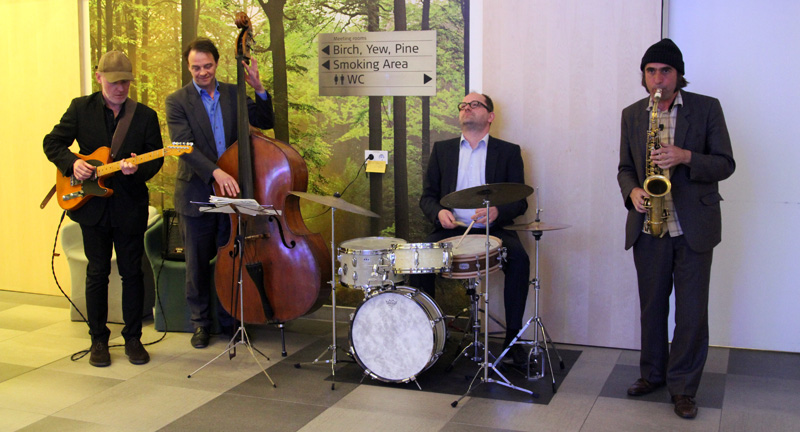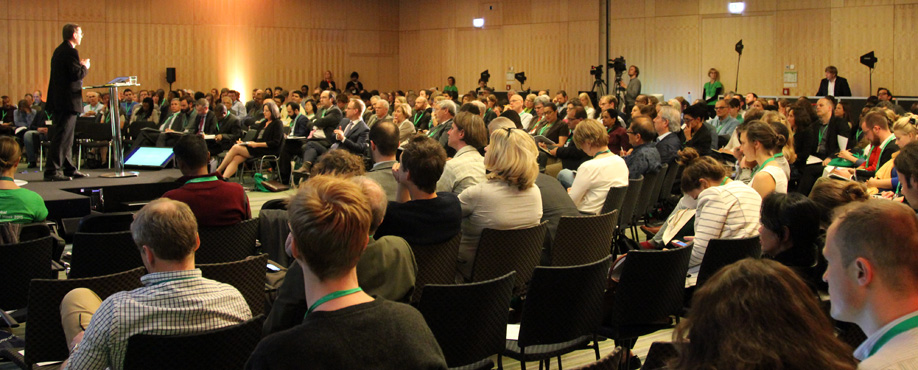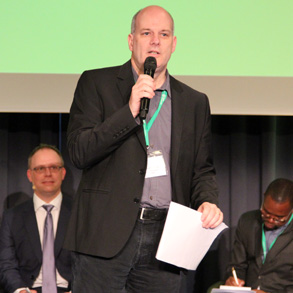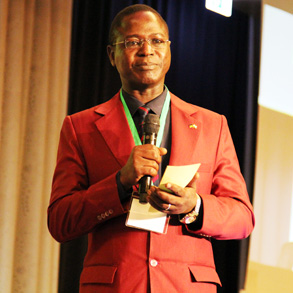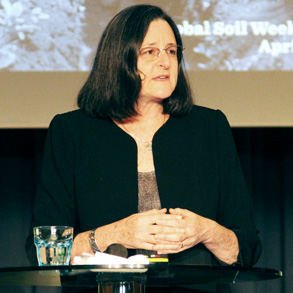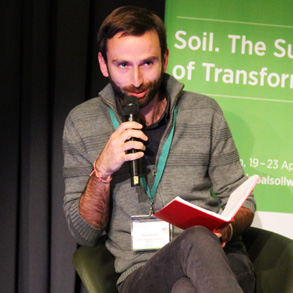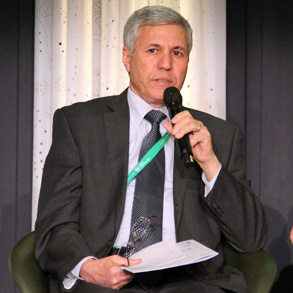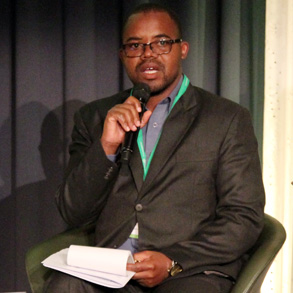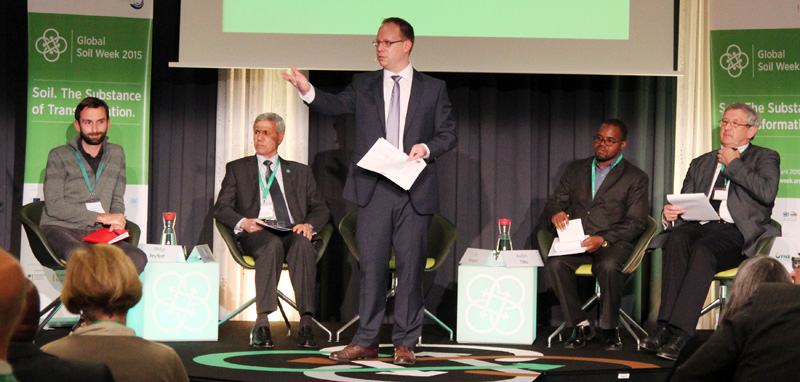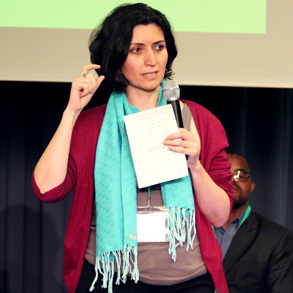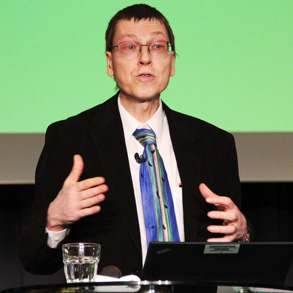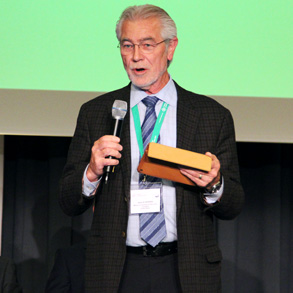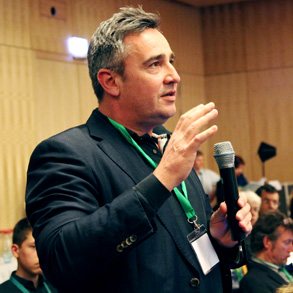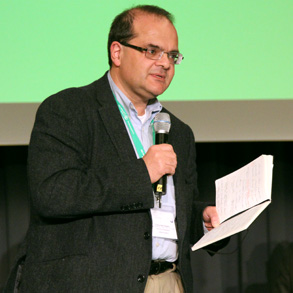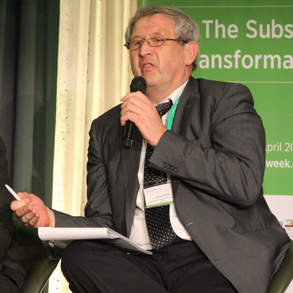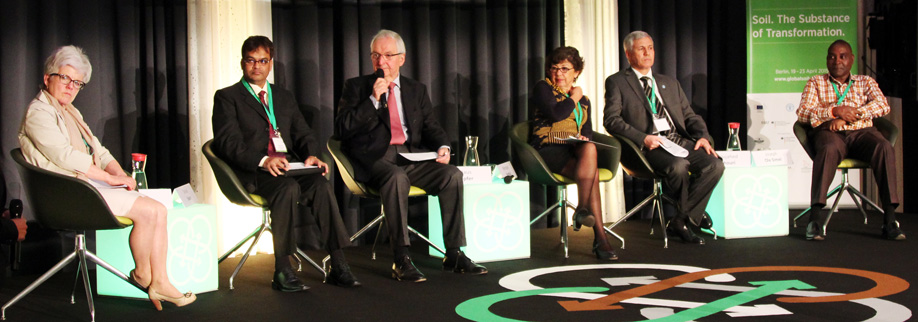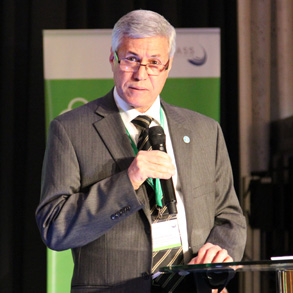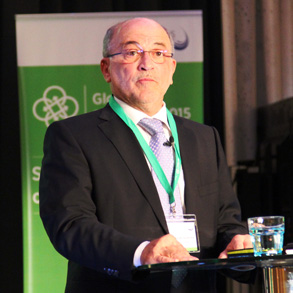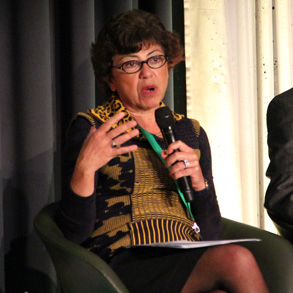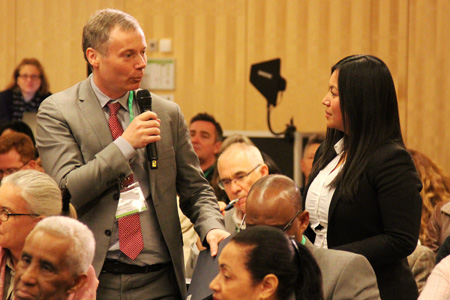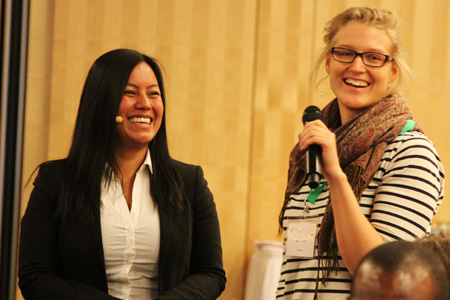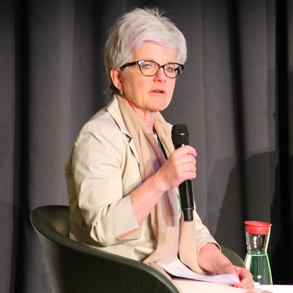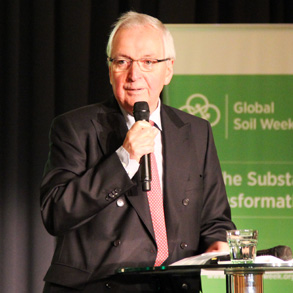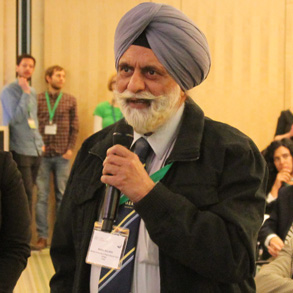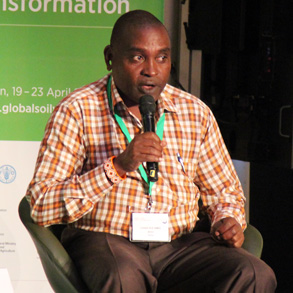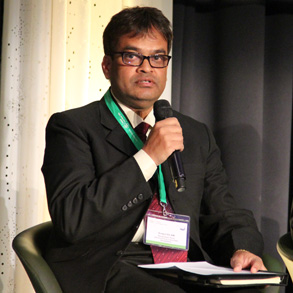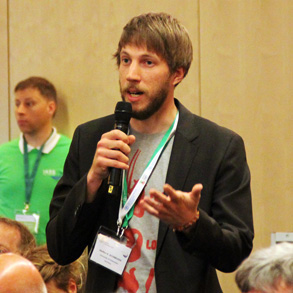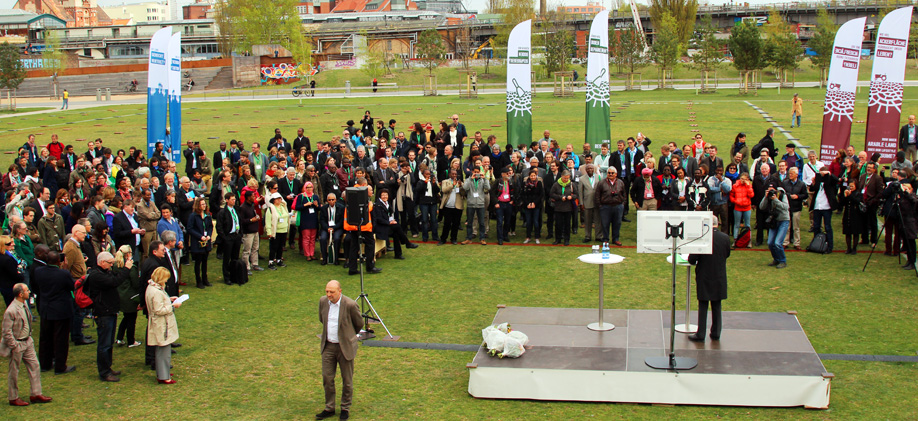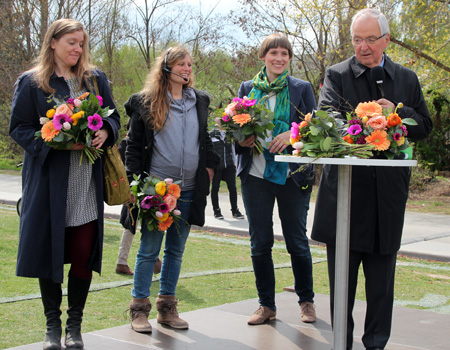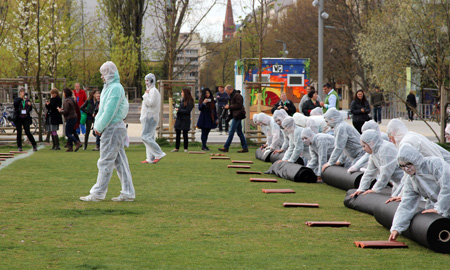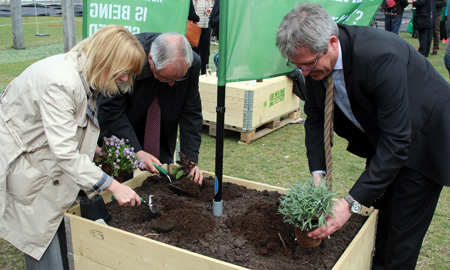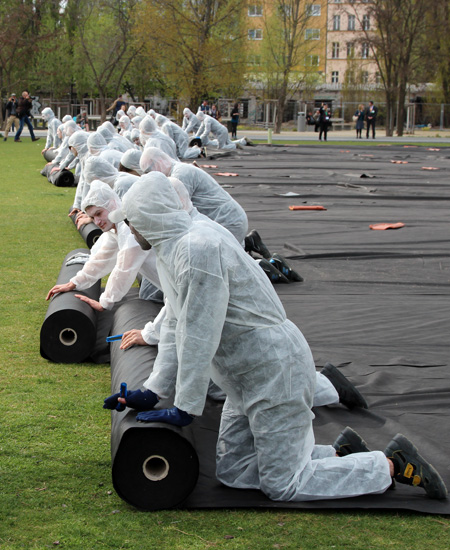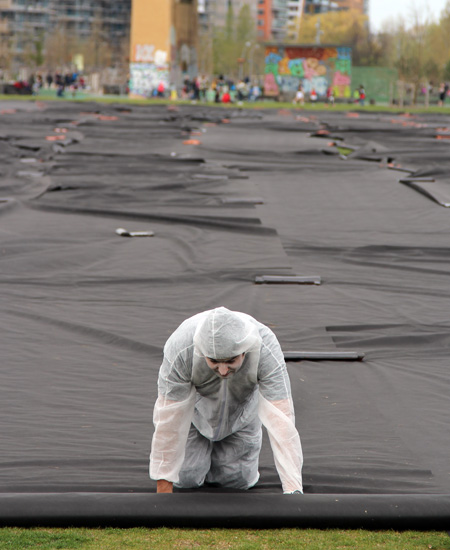| | |
|
The third day of Global Soil Week 2015 focused on developing an integrated perspective beyond 2015. In the morning, participants attended dialogue sessions on: experiences and strategies for implementation and monitoring of responsible governance of tenure of land, fisheries and forests; tools and approaches to increasing supply-chain sustainability of land-based commodities; soil and land indicators for the international policy agenda: towards joint action; building a knowledge and innovation platform on soil contamination for soil policies; financing soil and land rehabilitation; soil fertility management; nexus governance Post-2015: collaborative implementation; and soil-atmosphere exchange.
At lunchtime, participants attended the opening of the One Hectare exhibition and art installation in the park Gleisdreick – Schöneberger Wiese. The installation includes works from international artists in the form of performances, sculpture, sound installations and videos. To mark the opening, black fabric was unrolled over an area of one hectare by a group of performance artists. The unrolling lasted 20 minutes to symbolize the speed at which soil is being sealed in Germany.
The final plenary convened in the afternoon. Thomas Silberhorn, BMZ, described Germany’s support efforts to reduce land degradation and improve food security through the One World No Hunger Initiative. Alexander Müller, IASS Secretary General, summarized the conference’s main messages including: that sustainable land management can help achieve several SDGs; that soil protection and rehabilitation is about technologies as well as human rights; and the need to implement the SDGs consistently, and take advantage of their transformational potential.
The closing panel discussed how to move forward after Global Soil Week 2015. Theatersport Berlin closed the meeting with an improvised performance creatively capturing key messages emerging from conference. | |
| | |
| | |
|
Participants to Global Soil Week 2015 attended dialogue sessions in the morning to discuss: grounding global soil and land initiatives; challenges of doing transdisciplinary research; supporting soil decision making through soil and land information; land rehabilitation for food security; integrating arguments from the economics of land degradation into decision making processes; societal commitment towards healthy soils; cross-national strategies for soil protection and land use; the role of grass and grazing livestock in building resilience to climate change; and celebrating the International Year of Soils.
In the afternoon, participants convened in a plenary session to review the outcomes of the dialogue sessions and discuss an integrated perspective on the post-2015 agenda, including challenges of balancing competing demands placed on scarce soil resources.
In her keynote speech, Sara Scherr, President and CEO, EcoAgriculture Partners, introduced the landscape approach as a way to operationalize integrated management approaches. She stressed the need for a shift towards an approach that achieves multi-stakeholder, multi-objective integrated landscape management. Klaus Deininger, Lead Economist, Development Economics Group, World Bank, provided insights on linking land tenure and land use. He emphasized that interventions often involve risks, underscoring that proper land planning needs an inclusive process and multi-stakeholder approach, as mistakes may be fatal.
A panel of experts reflected on other aspects of managing soils as a non-renewable resource, including integrated land management, the role of human rights as overarching framework, the need to move beyond silos in research and practice, as well as the link between soil management and food security.
| |
| | |
| | |
|
The Third Global Soil Week (GSW) 2015 opened on Monday, 20 April, with a screening of Soil Movie 2.0. Klaus Töpfer, Institute for Advanced Sustainability Studies (IASS) Executive Director, welcomed participants and underlined that soil is at the center of the transformation needed to address a variety of environmental challenges. Noting that this transformation is a global challenge, he called for visionary target on soils in the context of the sustainable development goals (SDG) process. A panel of experts and practitioners discussed linkages between sustainable soil management and the SDGs, including experiences from Bangladesh, Kenya and the EU, as well as perspectives from the FAO and UNCCD.
A joint IASS-UNEP press conference was held at lunchtime to launch the report “The Role of Biomass in the SDGs: A Reality Check and Governance Implications.” The report assesses the coherence of the SDGs and their targets with regard to soil and biomass. It shows that that projected demand for biomass under the SDGs will exceed the quantities that can be produced with currently available arable land.
In the afternoon, participants convened in eight interactive dialogue sessions to further discuss linkages between soils and the post-2015 agenda, including the following issues: the role of soils for food security and sustainable food systems; the challenge of biomass within the post-2015 development agenda; overriding the urban/non-urban divide in the new urban agenda; mitigation and adaptation to climate change through sustainable land management; linking sustainable land management and the coastal and marine environments; the contribution of land degradation neutrality to climate change mitigation and adaptation; economics of land degradation; and land rehabilitation for food security.
| |
| | |


